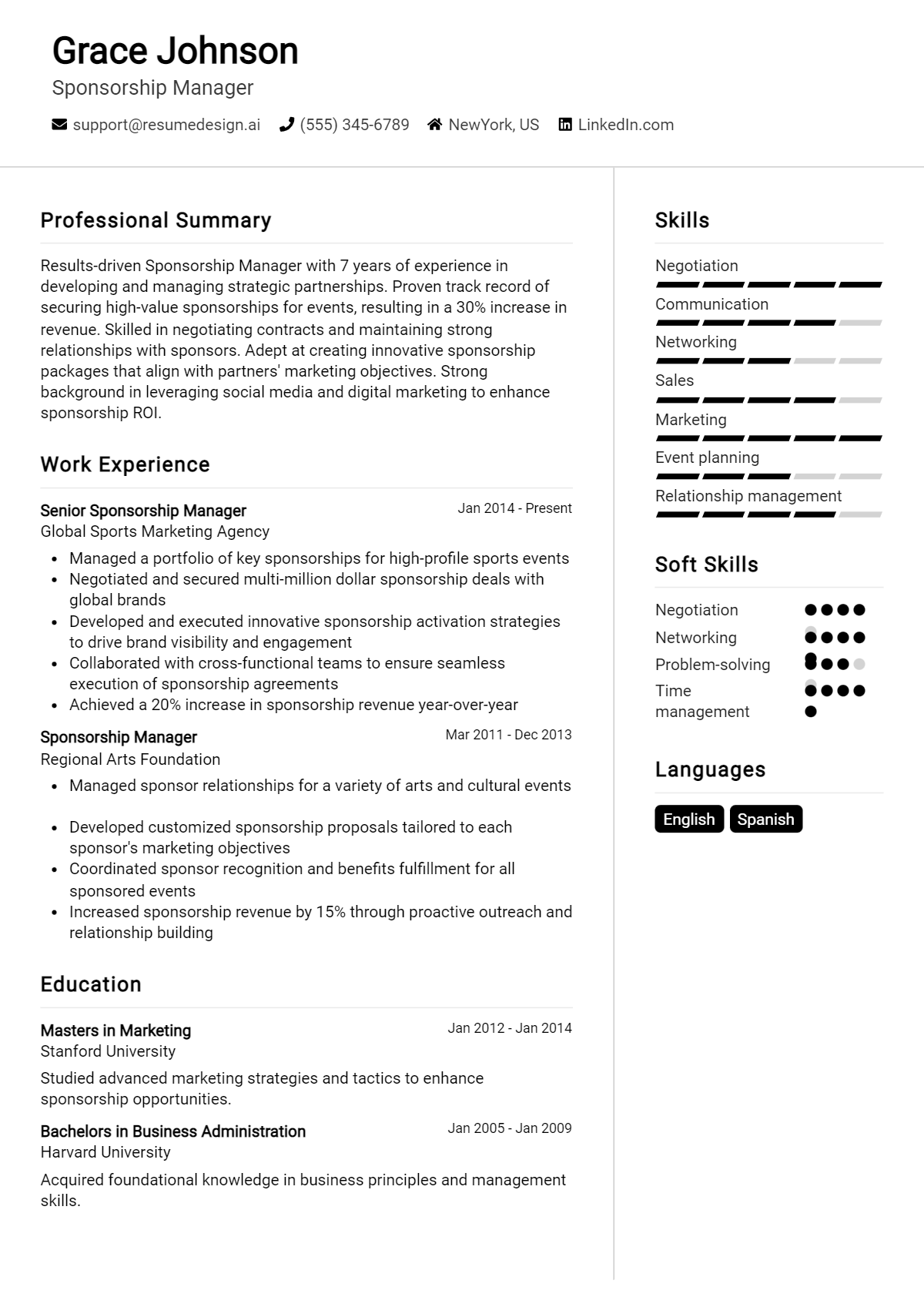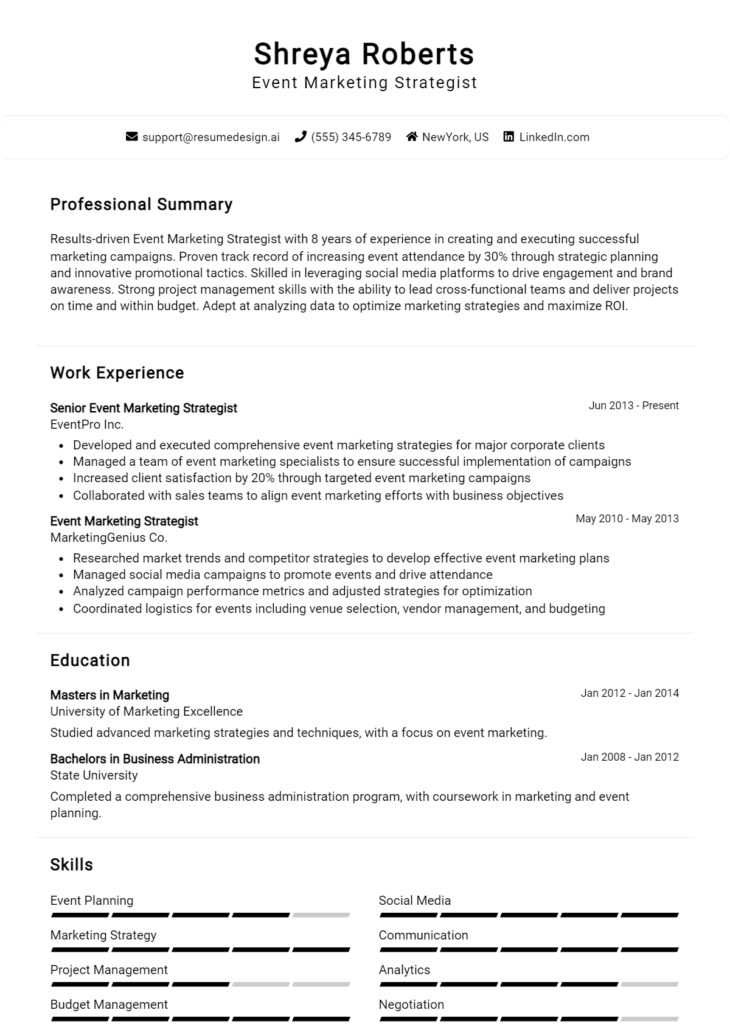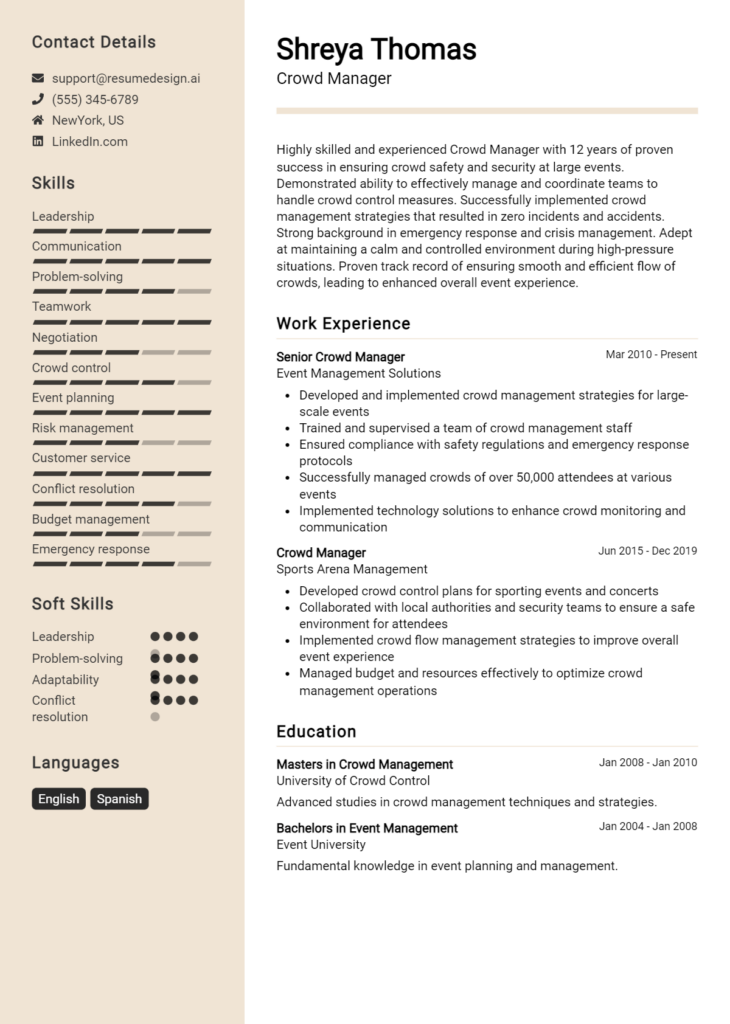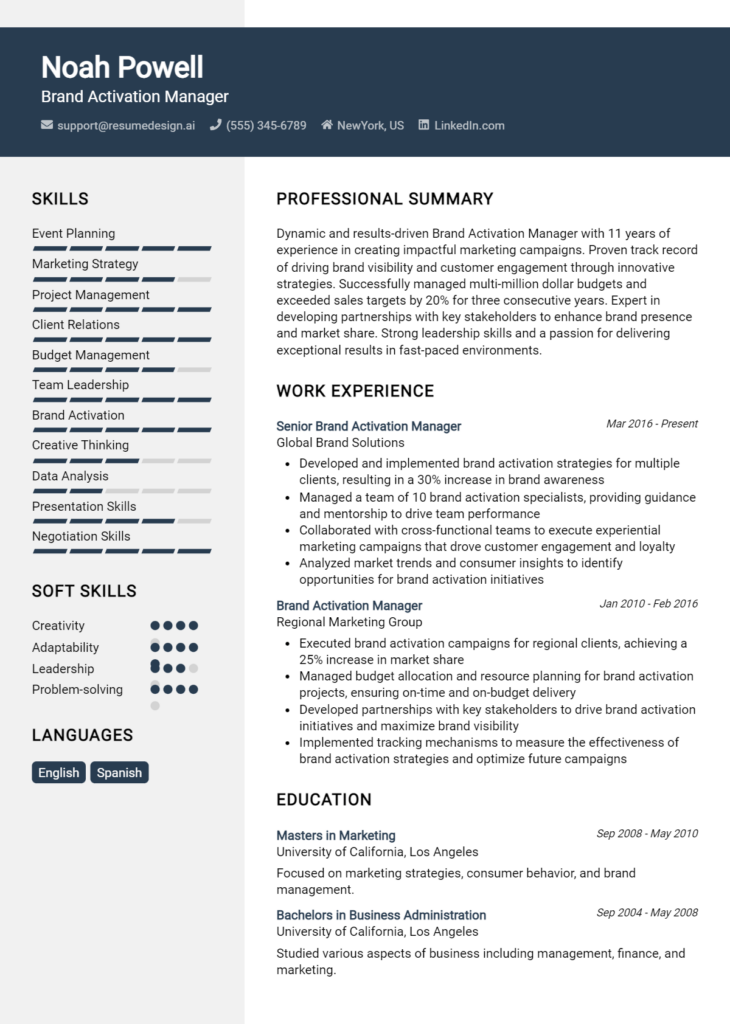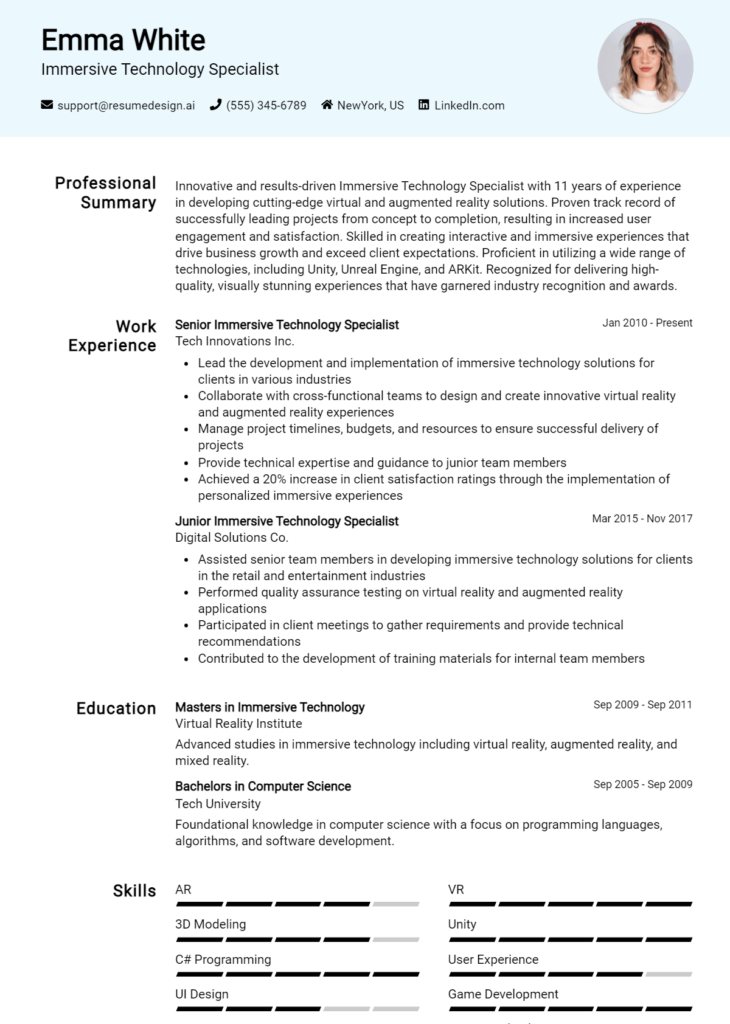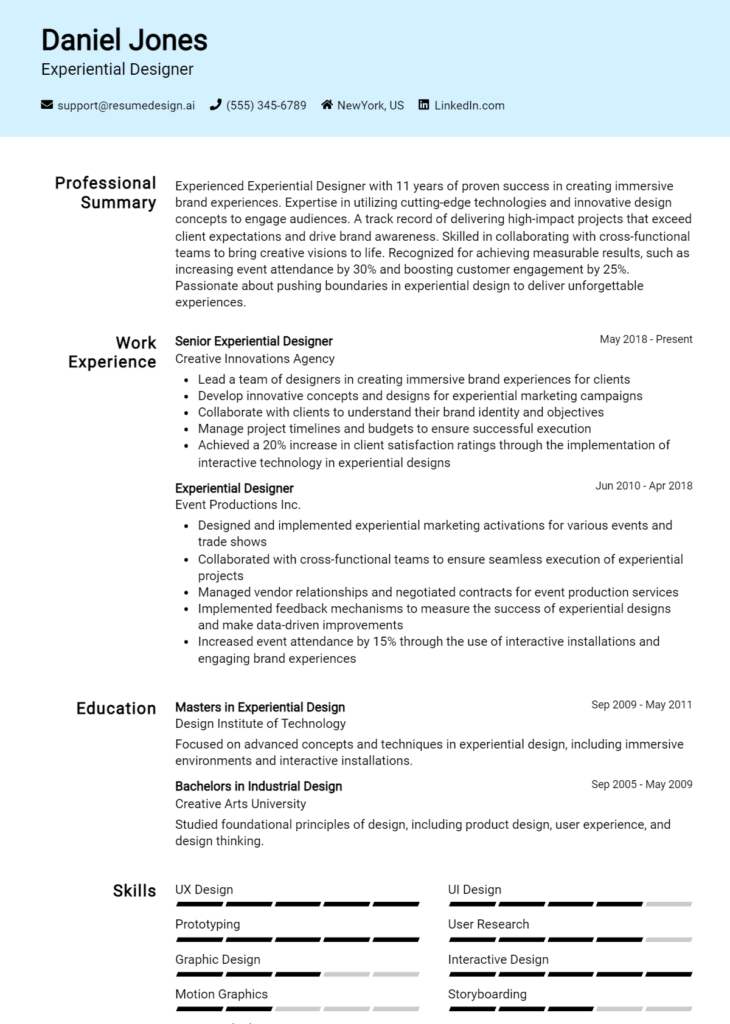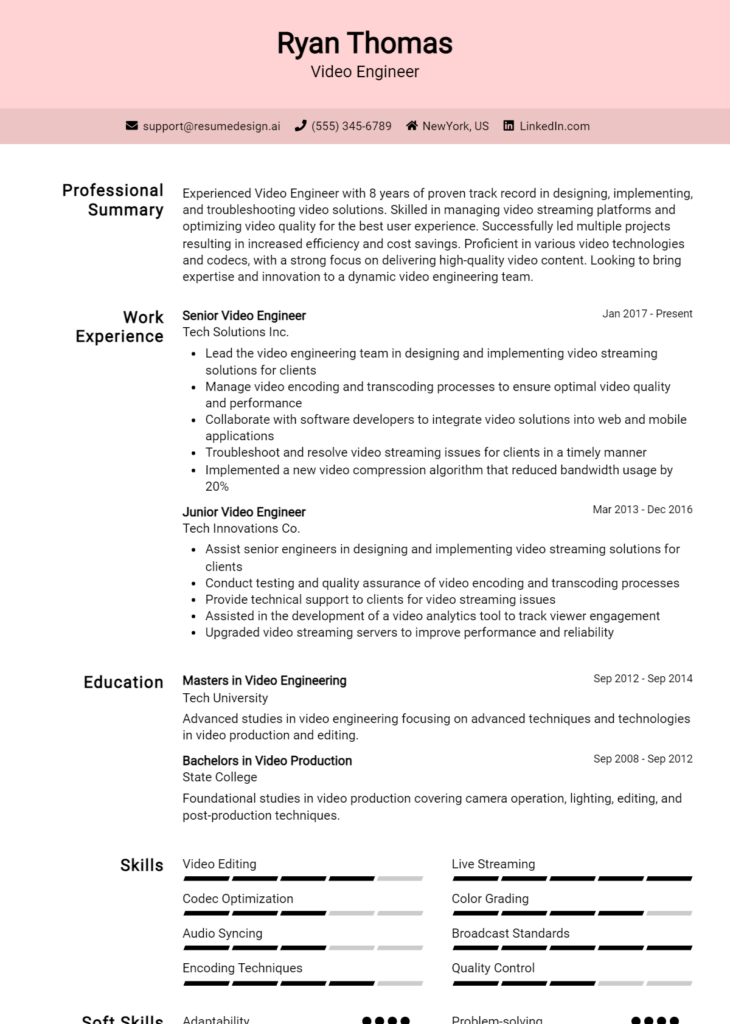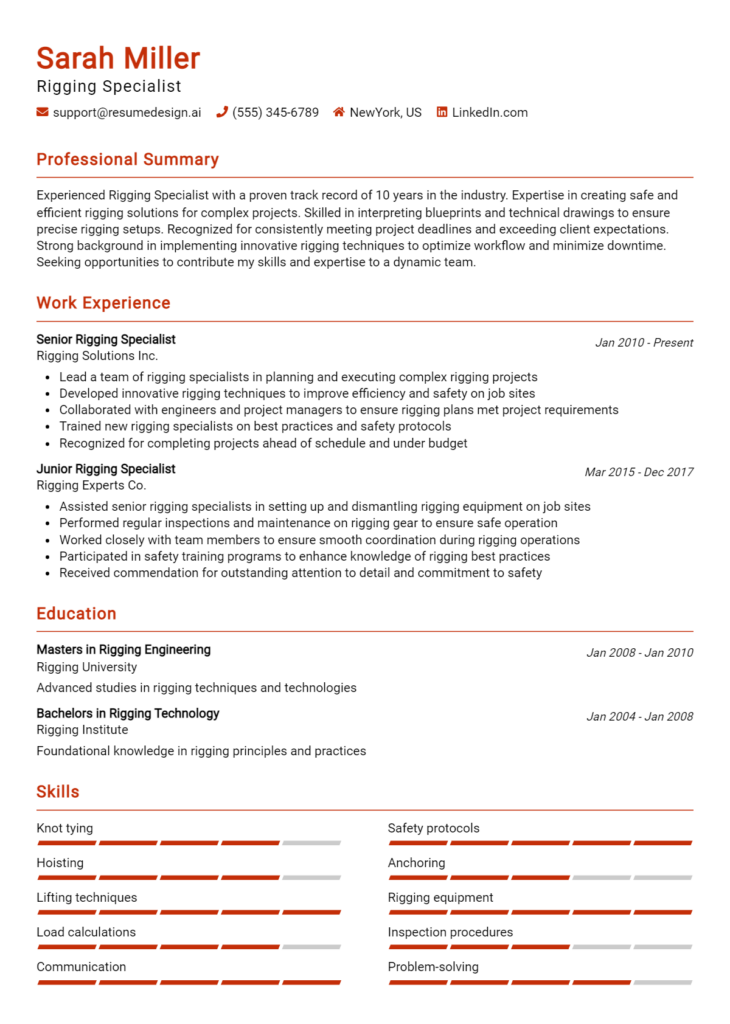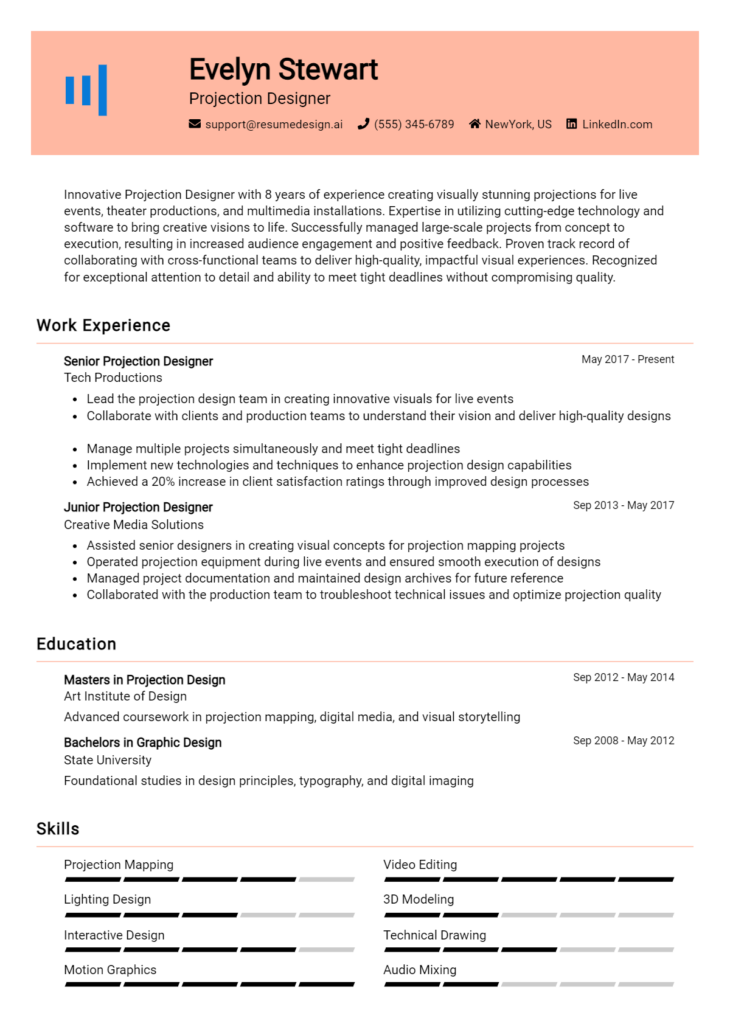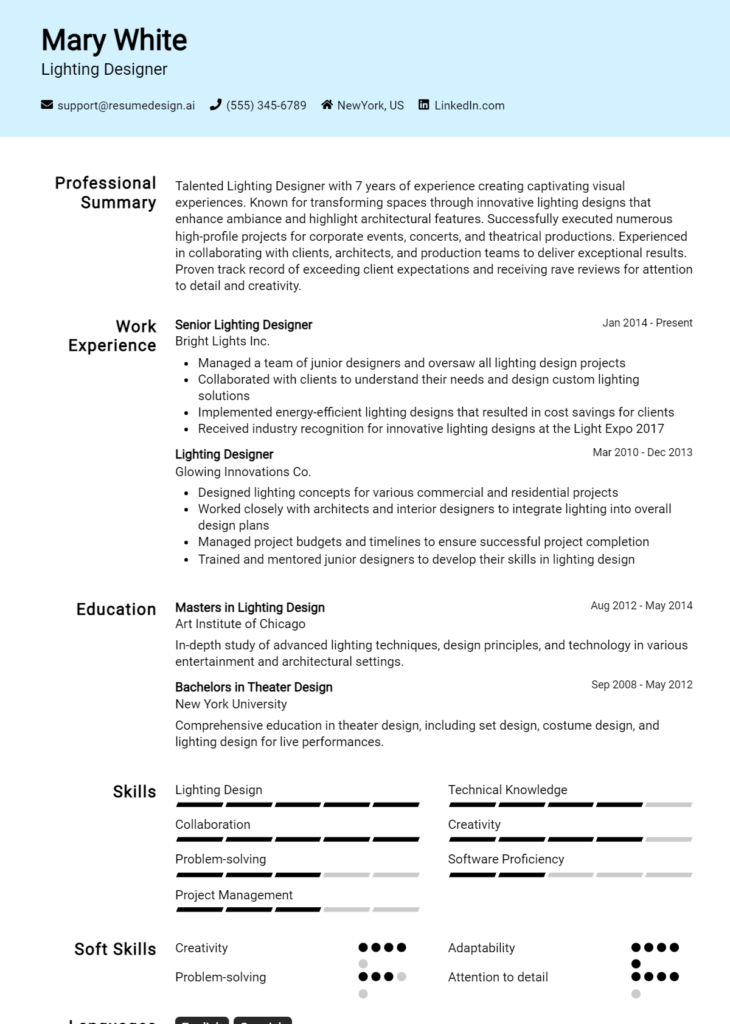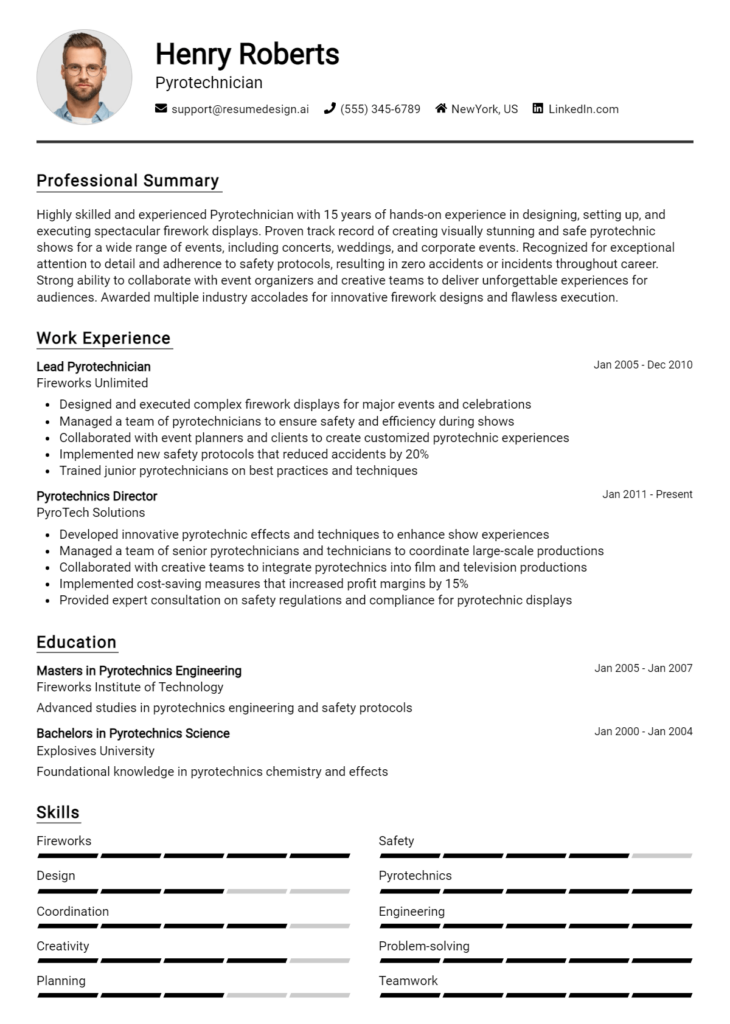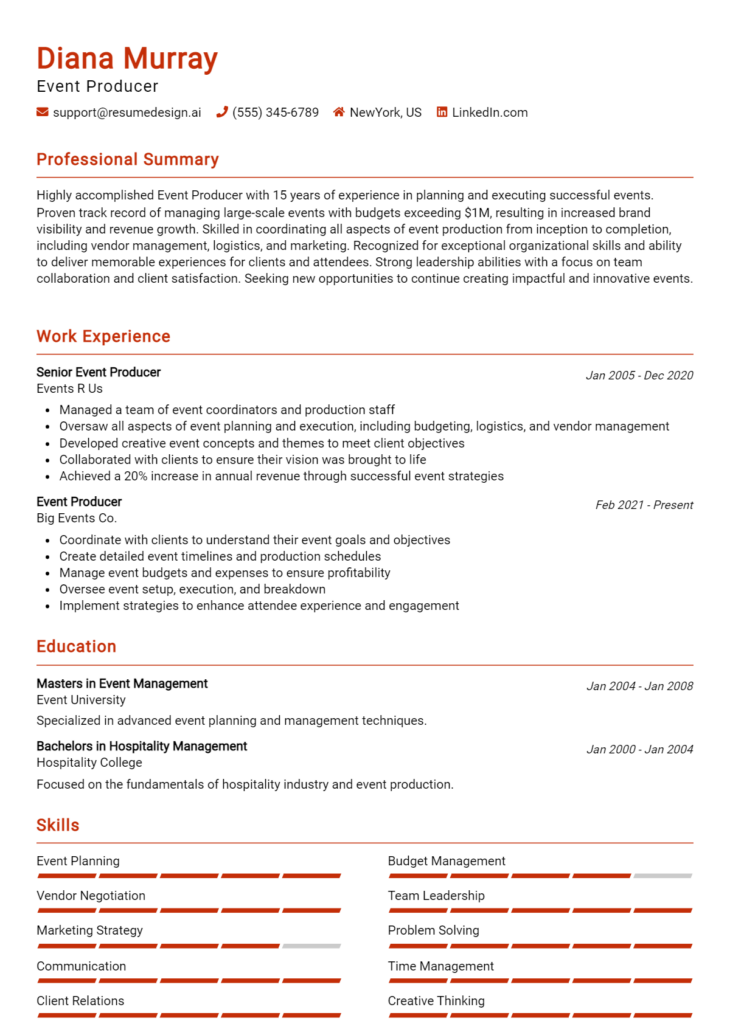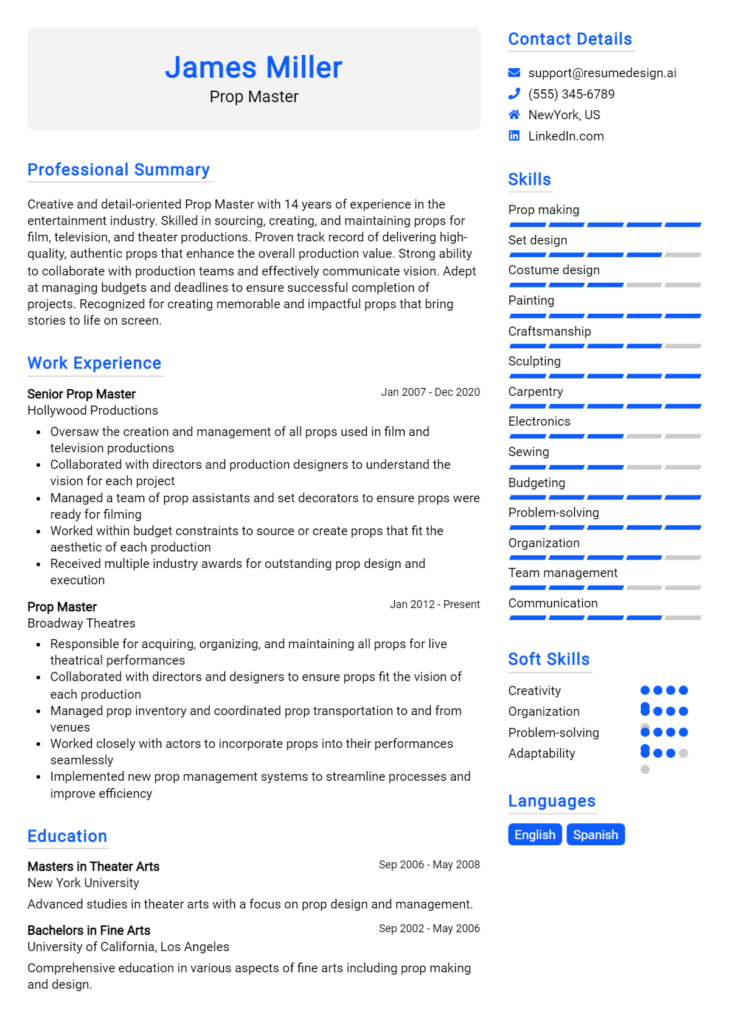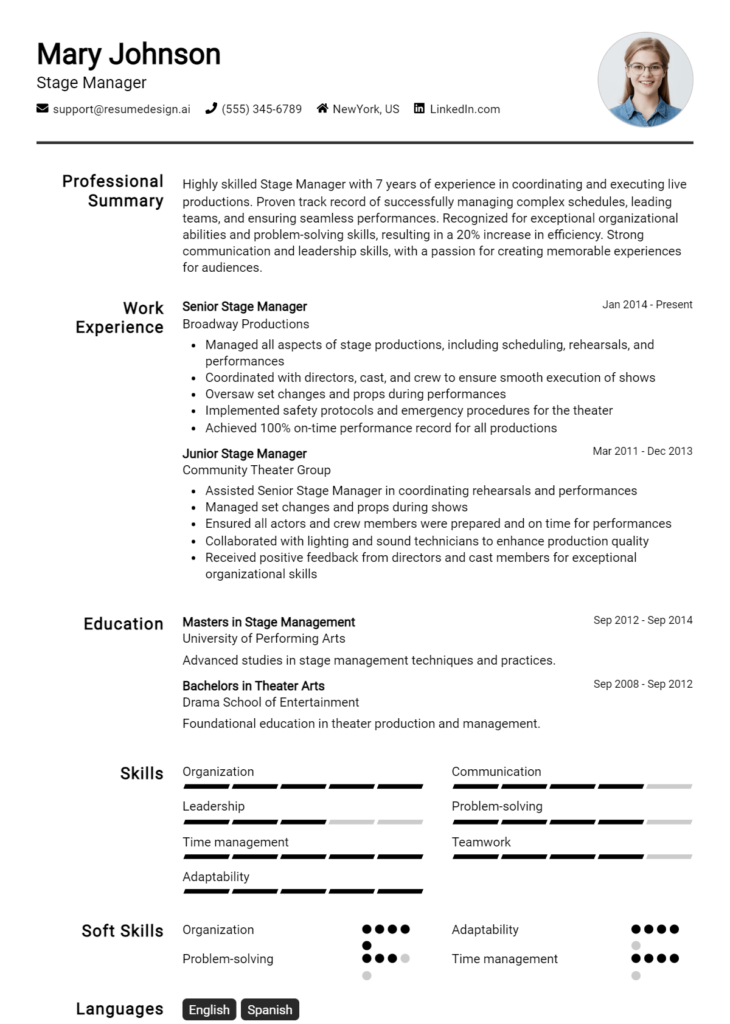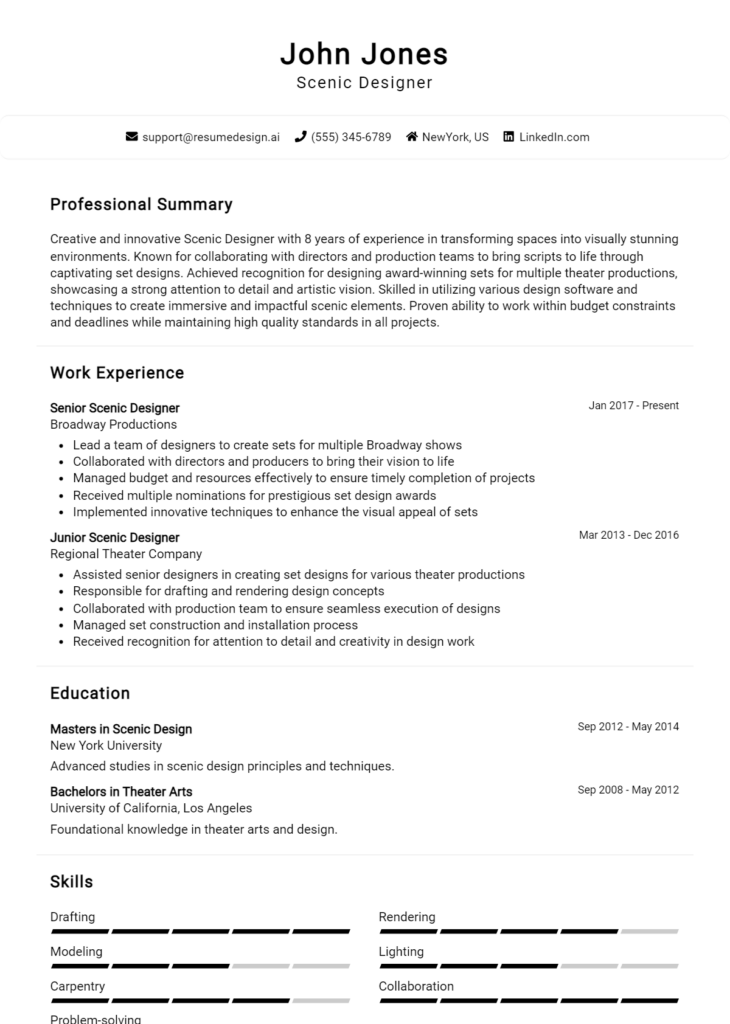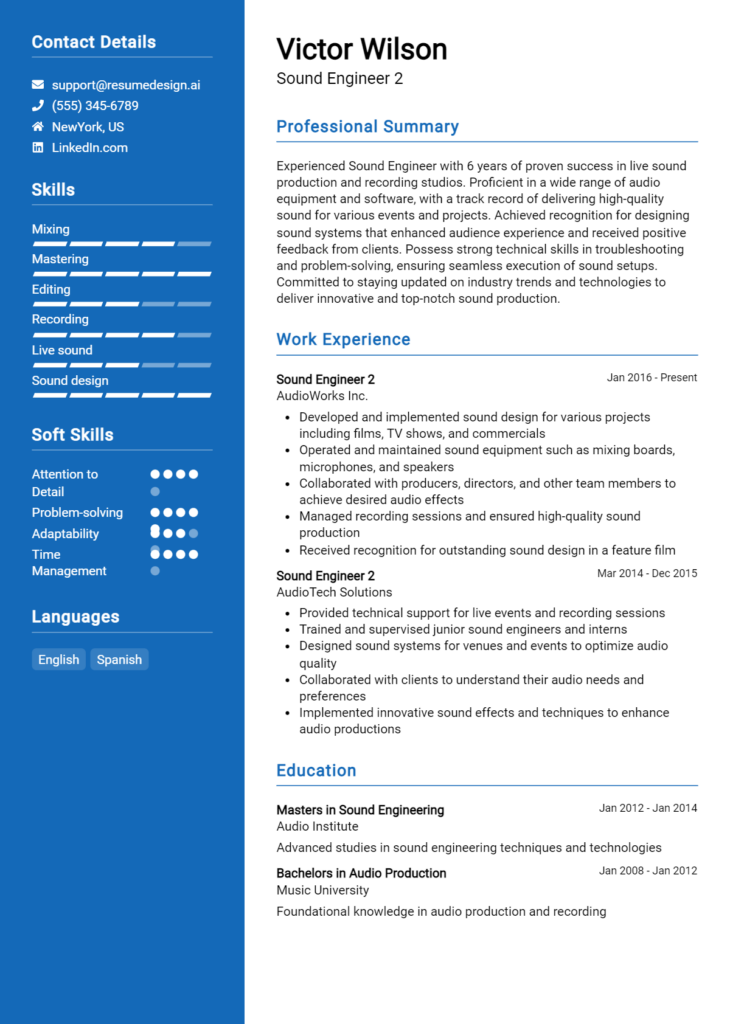Sponsorship Manager Core Responsibilities
A Sponsorship Manager plays a crucial role in bridging marketing, sales, and event management departments to secure and maintain sponsorships that align with the organization's strategic goals. Key responsibilities include identifying potential sponsors, negotiating contracts, and managing relationships to ensure mutual benefit. Essential skills encompass technical proficiency in CRM tools, operational efficiency in project management, and strong problem-solving abilities to address challenges as they arise. A well-structured resume can effectively highlight these qualifications, showcasing the candidate's ability to drive organizational success through strategic sponsorships.
Common Responsibilities Listed on Sponsorship Manager Resume
- Identify and research potential sponsorship opportunities aligned with organizational goals.
- Develop and negotiate sponsorship agreements and contracts.
- Manage relationships with sponsors to ensure satisfaction and retention.
- Collaborate with marketing and event teams to integrate sponsorships into campaigns.
- Monitor and report on sponsorship performance and ROI.
- Prepare presentations and proposals for potential sponsors.
- Coordinate logistics for sponsored events and activations.
- Conduct market analysis to identify trends and competitive landscape.
- Maintain a database of sponsors and track engagement history.
- Develop sponsorship marketing materials and communication strategies.
- Assist in budget planning and resource allocation for sponsorship initiatives.
High-Level Resume Tips for Sponsorship Manager Professionals
In the competitive landscape of Sponsorship Management, a well-crafted resume is not just a document; it’s your first introduction to potential employers and a crucial tool in showcasing your professional identity. As a Sponsorship Manager, your resume should effectively reflect your skills, achievements, and industry expertise while making a compelling case for why you are the ideal candidate. It’s essential to strike the right balance between creativity and professionalism, ensuring that your resume stands out in a crowded applicant pool. This guide aims to provide practical and actionable resume tips tailored specifically for Sponsorship Manager professionals, allowing you to present yourself in the best possible light.
Top Resume Tips for Sponsorship Manager Professionals
- Tailor your resume to the job description by incorporating relevant keywords and phrases that match the requirements of the position.
- Showcase your relevant experience in sponsorship management, including details about the types of sponsorships you have secured and managed.
- Quantify your achievements by using metrics such as revenue generated, number of successful campaigns, and percentage increase in sponsorship engagement.
- Highlight industry-specific skills, such as negotiation, relationship management, and knowledge of sponsorship trends and best practices.
- Include a professional summary that succinctly captures your career highlights and the unique value you bring to potential employers.
- Utilize bullet points for clarity and readability, ensuring each point is concise and focused on your impact in previous roles.
- Incorporate relevant certifications or training that demonstrate your commitment to professional development in sponsorship management.
- Consider adding a section for notable partnerships or sponsorships you have facilitated, showcasing your ability to connect brands with opportunities.
- Keep your resume design clean and professional, using consistent formatting and fonts to enhance readability.
- Proofread for errors and ensure that your resume is free from typos and grammatical mistakes, as attention to detail is crucial in this field.
By implementing these tips, you can significantly increase your chances of landing a job in the Sponsorship Manager field. A well-optimized resume that effectively highlights your skills, experiences, and achievements will not only capture the attention of hiring managers but also set the stage for a successful career in sponsorship management.
Why Resume Headlines & Titles are Important for Sponsorship Manager
In the competitive landscape of sponsorship management, a well-crafted resume headline or title is essential to make a strong first impression. It serves as the first point of contact between a candidate and a hiring manager, providing a snapshot of the individual’s key qualifications and areas of expertise. A strong headline can immediately capture attention and convey relevance, helping to distinguish the candidate from others in the applicant pool. Moreover, an effective headline should be concise yet impactful, clearly aligned with the specific role being applied for, thereby setting the tone for the rest of the resume.
Best Practices for Crafting Resume Headlines for Sponsorship Manager
- Keep it concise: Aim for a headline that is brief and to the point, ideally no more than one sentence.
- Be role-specific: Tailor your headline to reflect the specific job title you are applying for.
- Highlight key skills: Incorporate relevant skills or qualifications that align with the job requirements.
- Showcase accomplishments: Mention any notable achievements or contributions in past roles.
- Use industry keywords: Include terminology that is commonly used in the sponsorship sector to enhance relevance.
- Avoid jargon: While industry-specific language is important, avoid overly complex terms that may confuse the reader.
- Be authentic: Ensure that the headline accurately represents your professional identity and expertise.
- Make it compelling: Use action-oriented language that inspires interest and prompts the reader to learn more.
Example Resume Headlines for Sponsorship Manager
Strong Resume Headlines
"Dynamic Sponsorship Manager with Proven Track Record in Securing High-Value Partnerships"
"Results-Driven Sponsorship Specialist Focused on Innovative Brand Collaborations"
“Award-Winning Sponsorship Manager Skilled in Strategic Relationship Building and Revenue Growth”
Weak Resume Headlines
“Manager Looking for Job”
“Experienced Professional”
The strong headlines are effective because they provide a clear and specific overview of the candidate’s qualifications, including their experience, skills, and accomplishments, which are directly relevant to the role of a Sponsorship Manager. They are engaging and tailored, making them stand out to hiring managers. In contrast, the weak headlines fail to impress due to their vagueness and lack of specificity; they do not convey any unique value or insight into the candidate’s abilities, which makes it difficult for hiring managers to see why they should consider the applicant for the position.
Writing an Exceptional Sponsorship Manager Resume Summary
A well-crafted resume summary is crucial for a Sponsorship Manager as it serves as the first impression a hiring manager will have of a candidate. A strong summary quickly captures attention by succinctly showcasing key skills, relevant experience, and notable accomplishments tailored to the job role. It acts as a powerful elevator pitch that highlights the candidate’s unique value proposition, making it easier for employers to see how they can contribute to the organization. A concise and impactful summary not only sets the tone for the rest of the resume but also increases the likelihood of moving forward in the hiring process.
Best Practices for Writing a Sponsorship Manager Resume Summary
- Quantify Achievements: Use numbers to demonstrate the impact of your work, such as the amount of sponsorship revenue generated or percentage increases in brand visibility.
- Focus on Relevant Skills: Highlight specific skills related to sponsorship management, such as partnership development, negotiation, and event planning.
- Tailor to the Job Description: Customize your summary to align with the skills and experiences emphasized in the job posting.
- Keep it Concise: Aim for 3-5 sentences that deliver a clear message without unnecessary fluff.
- Showcase Industry Knowledge: Mention any relevant industry expertise or trends that relate to the sponsorship landscape.
- Highlight Soft Skills: Include soft skills like communication, relationship-building, and strategic thinking that are critical for a Sponsorship Manager.
- Use Action-Oriented Language: Start sentences with strong action verbs to convey confidence and proactivity.
- Maintain Professional Tone: Ensure the language used is professional and aligns with the expectations of the industry.
Example Sponsorship Manager Resume Summaries
Strong Resume Summaries
Results-driven Sponsorship Manager with over 7 years of experience in securing multimillion-dollar partnerships, achieving a 40% increase in sponsorship revenue year-over-year. Proven track record in developing strategic alliances that enhance brand visibility and drive engagement through innovative marketing campaigns.
Dynamic Sponsorship Manager skilled in negotiating high-value contracts and managing a diverse portfolio of sponsors. Successfully executed over 50 events, resulting in an average 30% growth in sponsor retention and satisfaction ratings.
Accomplished Sponsorship Manager with expertise in digital marketing strategies and partnership development. Increased social media engagement by 60% through targeted sponsorship activations, significantly boosting brand recognition and consumer interaction.
Weak Resume Summaries
Experienced Sponsorship Manager looking for a new opportunity. I have worked with various sponsors and helped with events.
Sponsorship Manager with some experience in the industry. I am good at working with people and managing projects.
The examples of strong resume summaries stand out due to their specificity, quantifiable achievements, and relevance to the sponsorship management field. They effectively communicate the candidate's value through concrete results and tailored skills. In contrast, the weak summaries lack detail, specificity, and measurable outcomes, making them less compelling for hiring managers. They fail to convey the candidate's unique contributions or how they align with the needs of the organization.
Work Experience Section for Sponsorship Manager Resume
The work experience section of a Sponsorship Manager resume is crucial as it serves as a testament to the candidate's proficiency in managing sponsorships and partnerships, showcasing their technical skills, leadership capabilities, and the ability to deliver high-quality results. This section not only highlights the candidate's past roles but also quantifies their achievements, demonstrating their impact within the industry. By aligning their experience with industry standards and presenting measurable outcomes, candidates can effectively illustrate their value to potential employers, making it essential to craft this section thoughtfully.
Best Practices for Sponsorship Manager Work Experience
- Begin each bullet point with strong action verbs that convey leadership and initiative.
- Quantify achievements with specific metrics, such as revenue generated, number of partnerships secured, or percentage growth in sponsorship engagement.
- Highlight technical skills relevant to sponsorship management, including CRM software proficiency, data analysis, and contract negotiations.
- Showcase experience in managing teams and cross-functional collaboration to demonstrate leadership and teamwork abilities.
- Align work experiences with industry standards and terminology to ensure relevance and relatability.
- Share insights on strategic planning and execution of sponsorship campaigns to emphasize strategic thinking.
- Include examples of problem-solving and overcoming challenges in sponsorship management.
- Tailor experiences to reflect the specific job description and required qualifications of the position being applied for.
Example Work Experiences for Sponsorship Manager
Strong Experiences
- Secured over $500,000 in sponsorship revenue through strategic partnerships, resulting in a 40% increase from the previous year.
- Led a cross-functional team of 10 in the execution of a national sponsorship campaign, enhancing brand visibility and achieving a 30% growth in audience engagement.
- Implemented a new CRM system that streamlined sponsorship tracking processes, reducing administrative workload by 25% and increasing team productivity.
- Developed and negotiated contracts with top-tier sponsors, ensuring alignment with brand values and achieving a satisfaction rate of 95% from stakeholders.
Weak Experiences
- Worked on sponsorships and partnerships in various capacities.
- Helped the team with some sponsorship-related tasks.
- Participated in meetings to discuss sponsorship strategies.
- Assisted in managing sponsorship projects.
The examples presented highlight the distinction between strong and weak experiences in a Sponsorship Manager's resume. Strong experiences are characterized by specific, quantifiable outcomes and demonstrate a clear impact on the organization, showcasing leadership, technical skills, and collaborative efforts. In contrast, weak experiences lack detail and measurable results, making them less compelling to potential employers, as they do not effectively convey the candidate's capabilities or contributions to past roles.
Education and Certifications Section for Sponsorship Manager Resume
The education and certifications section of a Sponsorship Manager's resume is crucial for showcasing the candidate's academic background and commitment to professional development within the industry. This section not only highlights relevant degrees but also emphasizes industry-recognized certifications and specialized training that align with the role's demands. By providing relevant coursework and credentials, candidates can significantly enhance their credibility and demonstrate their dedication to continuous learning, making them more appealing to potential employers in the competitive field of sponsorship management.
Best Practices for Sponsorship Manager Education and Certifications
- Focus on relevant degrees such as Marketing, Business Administration, or Communications.
- Include industry-recognized certifications like Certified Sponsorship Executive (CSE) or Sponsorship Management Systems (SMS).
- List any specialized training programs that enhance skills specific to sponsorship management.
- Be specific about relevant coursework that demonstrates knowledge in sponsorship, event management, or fundraising.
- Highlight continuing education efforts, such as workshops or seminars related to sponsorship trends.
- Ensure that all listed credentials are current and up-to-date to reflect ongoing professional development.
- Use clear formatting to make the section easily readable and visually appealing.
- Tailor the education and certifications section to match the specific requirements of the job posting.
Example Education and Certifications for Sponsorship Manager
Strong Examples
- Bachelor of Science in Marketing, University of XYZ, 2020
- Certified Sponsorship Executive (CSE), Sponsorship Marketing Association, 2022
- Certificate in Event Management, ABC Institute, 2021
- Relevant Coursework: Strategic Marketing, Event Planning, and Fundraising Strategies
Weak Examples
- Associate Degree in General Studies, Community College, 2015
- Certification in Basic Graphic Design, Online Course, 2019
- High School Diploma, 2010
- Outdated certification in Social Media Marketing, 2018
The strong examples provided are considered valuable as they directly relate to the qualifications and skills necessary for a Sponsorship Manager role, showcasing relevant degrees and recognized certifications that indicate a commitment to the field. In contrast, the weak examples lack relevance and do not align with the expectations of the position, presenting outdated or unrelated qualifications that fail to demonstrate the candidate's suitability for the role.
Top Skills & Keywords for Sponsorship Manager Resume
The role of a Sponsorship Manager is pivotal in building and maintaining relationships that drive revenue and brand visibility for organizations. A well-crafted resume is essential for showcasing the unique blend of skills required to excel in this position. Highlighting both hard and soft skills can significantly enhance your appeal to potential employers. Proficient Sponsorship Managers demonstrate not only their technical expertise but also their interpersonal abilities, ensuring they can effectively negotiate partnerships and foster collaborative environments. By focusing on relevant skills and presenting a strong work experience section, candidates can create a compelling narrative that sets them apart in a competitive job market.
Top Hard & Soft Skills for Sponsorship Manager
Soft Skills
- Excellent communication skills
- Relationship building
- Negotiation skills
- Team collaboration
- Problem-solving abilities
- Strategic thinking
- Adaptability
- Time management
- Creativity
- Customer-centric approach
- Conflict resolution
- Networking prowess
- Persuasiveness
- Emotional intelligence
- Leadership qualities
Hard Skills
- Market research proficiency
- Data analysis and interpretation
- Budget management
- Contract negotiation
- Event planning expertise
- Brand management
- Digital marketing knowledge
- CRM software familiarity
- Social media strategy
- Reporting and analytics
- Presentation skills
- Understanding of sponsorship trends
- Project management
- Sales strategy development
- Financial forecasting
- Knowledge of relevant legal regulations
By incorporating these skills into your resume, you can effectively communicate your qualifications and readiness to take on the challenges of a Sponsorship Manager role.
Stand Out with a Winning Sponsorship Manager Cover Letter
I am writing to express my interest in the Sponsorship Manager position at [Company Name], as advertised on [where you found the job listing]. With over [X years] of experience in developing and managing sponsorship programs across various industries, I am confident in my ability to contribute effectively to your team and drive impactful partnerships that align with your organization’s goals.
In my previous role at [Previous Company Name], I successfully secured and managed sponsorships that resulted in a [specific achievement, e.g., 30% increase in revenue, enhanced brand visibility, etc.]. By leveraging my strong networking skills and understanding of market trends, I was able to cultivate relationships with key stakeholders, ensuring mutually beneficial agreements. I am adept at creating compelling proposals and presentations that resonate with potential sponsors, showcasing the value and return on investment they can achieve through collaboration.
I am particularly drawn to [Company Name] because of your commitment to [specific mission, value, or project of the company]. I believe that my strategic approach to sponsorship management, combined with my passion for fostering long-term relationships, aligns perfectly with your vision. I am excited about the opportunity to bring my expertise in negotiation and relationship management to enhance your sponsorship initiatives and contribute to the continued success of your brand.
Thank you for considering my application. I look forward to the possibility of discussing how my skills and experiences can benefit [Company Name]. I am eager to bring my creativity and strategic thinking to your team, driving successful sponsorship outcomes that elevate your brand and engage your audience.
Common Mistakes to Avoid in a Sponsorship Manager Resume
When crafting a resume for a Sponsorship Manager position, it's crucial to avoid common pitfalls that can hinder your chances of landing an interview. A well-structured resume can effectively showcase your skills and experiences, while mistakes can create a negative impression. Below are some frequent errors to steer clear of when putting together your Sponsorship Manager resume:
Generic Objective Statements: Using vague or generic objectives fails to demonstrate your specific interest in the sponsorship role, making it hard for employers to see your potential fit.
Lack of Quantifiable Achievements: Failing to include measurable results from previous sponsorships, such as revenue generated or partnerships secured, can make your accomplishments appear less impactful.
Overly Complex Language: Using jargon or overly complicated language can obscure your qualifications. Clear and concise language is more effective in communicating your skills.
Ignoring Keywords from the Job Description: Not incorporating relevant keywords from the job listing may lead to your resume being overlooked by Applicant Tracking Systems (ATS), which many companies use to filter resumes.
Inconsistent Formatting: An unprofessional layout or inconsistent formatting can distract from your content. Ensure that your resume is visually appealing and easy to read.
Neglecting Soft Skills: While technical skills are essential, neglecting to highlight soft skills, such as communication and negotiation, can give an incomplete picture of your capabilities as a Sponsorship Manager.
Focusing on Irrelevant Experience: Including too much unrelated work experience dilutes your resume. Tailor your experiences to highlight those that are directly relevant to sponsorship management.
Not Including a Cover Letter: Omitting a cover letter can be a missed opportunity to elaborate on your resume and explain why you're a strong candidate for the role, making your application less compelling.
Conclusion
As a Sponsorship Manager, your role is pivotal in creating mutually beneficial partnerships that drive brand visibility and revenue growth. Throughout this article, we've discussed the essential skills required for success in this position, including relationship management, negotiation skills, and strategic planning. We’ve also highlighted the importance of understanding market trends and aligning sponsorship opportunities with organizational goals.
To stand out in this competitive field, it’s crucial to have a polished and professional resume that effectively showcases your experience and accomplishments. Take a moment to review your Sponsorship Manager resume and ensure it reflects the skills and experiences we've outlined.
Consider utilizing helpful resources such as resume templates to give your resume a fresh look, or try out the resume builder to streamline the creation process. If you’re looking for inspiration, explore resume examples that can help you craft a standout document. Additionally, don’t forget about the importance of a compelling cover letter; check out the cover letter templates available to help you make a great first impression.
Take action today and elevate your job application materials to reflect your expertise as a Sponsorship Manager!

